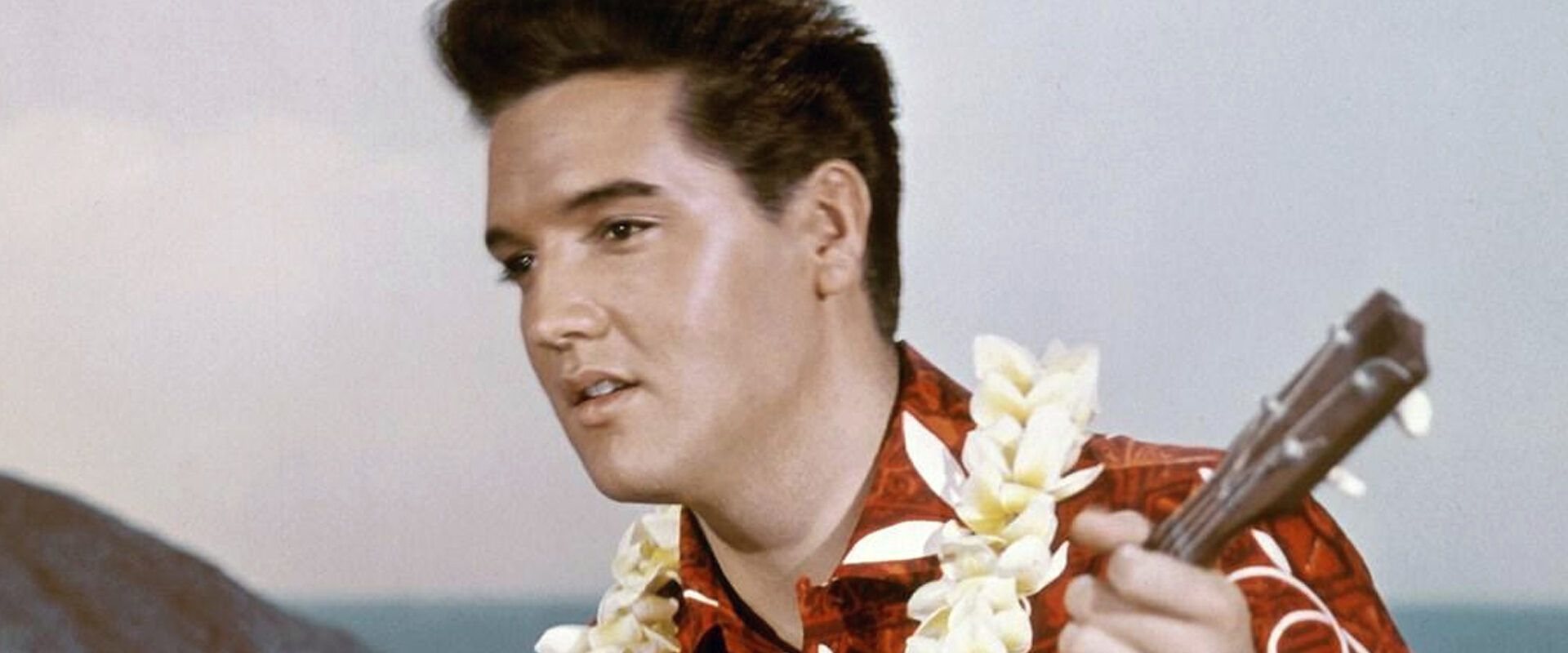Elvis Presley once had dreams of becoming a dramatic actor akin to the “next James Dean” until a historical album prompted a distinct career change in the opposite direction. RCA released the record-breaking soundtrack on October 20, 1961, cementing Presley’s place as a lighthearted, comedic actor (who also happened to sing in his movies). The exotic locale of this particular film helped inform the rest of what would later be dubbed the “Presley pictures,” putting the King of Rock ‘n’ Roll on the silver screen in sunny spots like Las Vegas and Acapulco.
Hawaii, of course, was the first. Blue Hawaii opened in 1961 to tremendous critical acclaim, becoming the 10th top-grossing film of the year. The film’s soundtrack, performed by Presley, was also incredibly successful. The album spent a whopping 39 weeks in the Top 10 of Billboard’s Top Pop LP charts. This impressive run made it the second-highest charting soundtrack album of the decade, bested by West Side Story. The Blue Hawaii soundtrack included some songs that would become synonymous with Presley’s musical legacy, like “Can’t Help Falling in Love”.
As impressive as these accolades were, they came at a creative price. Leading up to the film’s release, Presley was pushing for more serious, dramatic acting roles instead of the fluffy comic roles he played in movies like G.I. Blues. Although Presley and his manager, Colonel Tom Parker, were in agreement that Hollywood was the next best endeavor for the rock musician (who was freshly and honorably discharged from the U.S. Army at the time), Parker wasn’t sure Presley should pursue drama.
Blue Hawaii only proved Parker’s point.
This Historical Album Marked a Career Change for Elvis Presley
Following his discharge from the military, Elvis Presley decided to start focusing on his acting career. He wanted to become a serious actor like Marlon Brando or Warren Beatty, but his manager, Colonel Tom Parker, wasn’t so sure. Presley went forward with two serious roles anyway—two dramatic Westerns called Flaming Star and Wild in the Country—but neither film performed exceptionally well. For as charming and charismatic as Presley could be on stage, he had intense bouts of insecurity. This self-doubt led to stale performances under the guidance of on-set authority figures Presley never had the gall to question. A steadily increasing use of amphetamines and plenty of friends to distract him on set didn’t help matters, either.
Blue Hawaii was a step in the right direction, commercially speaking, but a step backward creatively. The 1961 film saw Presley as Chad Gates, a romantic, dashing G.I. who returns from the army, resists his family’s demand to take up the family pineapple business, and starts working as a tour guide instead. The romantic comedy was far more suitable for Presley’s acting (or lack thereof). He was simply playing himself, which was precisely what the audience wanted. The movie and the corresponding soundtrack’s success confirmed what Parker already thought. If Presley was going to be an actor, he needed comic romantic roles, not dark, brooding ones. From then on, the rest of the “Presley pictures” canon largely followed the Blue Hawaii formula, much to Presley’s chagrin.
For the first half of the 1960s, Presley was, for lack of a better term, a cash cow for the Hollywood film industry. His movies were predictable both in storyline and in their ability to make money. Presley’s long-time producer, Hal Willis, once said, “A Presley picture is the only sure thing in Hollywood.”
When Did He Become the King of Rock ‘n’ Roll Again?
Elvis Presley continued to struggle throughout the last half of the 1960s, growing restless and unsatisfied with his struggling career. Seven years after the success of Blue Hawaii, the King of Rock ‘n’ Roll returned with his ‘68 Comeback Special. His first live performance in years saw Presley return to his hip-swinging, lip-snarling, rock ‘n’ roll persona that catapulted him to stardom in the first place. For the rest of his career, up to his death in 1977, Presley prioritized music. Long gone were the days when he wished he could be like James Dean. He had his own leather-clad identity to uphold, anyway. Being the King of Rock ‘n’ Roll would have to suffice.
Still, Presley was never totally able to escape the legacy of his film career. Tracks from the historical soundtrack album he put out in 1961 would continue to be staples in his live performances, including “Can’t Help Falling in Love” and the title track.
Photo by Sunset Boulevard/Corbis via Getty Images

